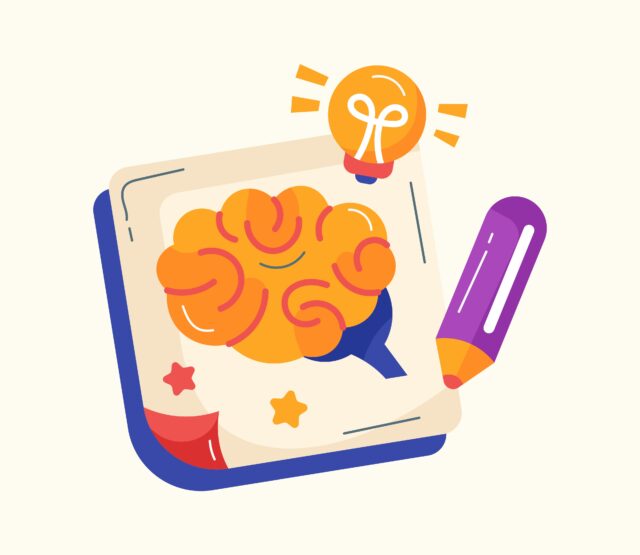 When making any decision, intelligence certainly plays a key role. However, often it’s only the logical, rational side of intelligence that people rely on, especially in worlds like cybersecurity. It’s a field that’s ones and zeroes, so many would think there’s no heart involved. Except those on the other side of the battle are using all their intelligence, something I call total intelligence.
When making any decision, intelligence certainly plays a key role. However, often it’s only the logical, rational side of intelligence that people rely on, especially in worlds like cybersecurity. It’s a field that’s ones and zeroes, so many would think there’s no heart involved. Except those on the other side of the battle are using all their intelligence, something I call total intelligence.
The concept of total intelligence and applying it well as a decision-maker and leader have much to do with cybersecurity. It’s a term that I repeatedly use in my book, The Smartest Person in the Room.
You’re probably wondering what total intelligence is, so that’s where we’ll start.
What Is Total Intelligence?
My definition of total intelligence involves your body, heart, and head. It’s all the information you gain from experiences, training, education, and life. It’s the ability to lead with all of these aspects. Another way to think about it is what many call a “gut feeling.”
Being a cybersecurity leader requires total intelligence in every part of the job. However, you’ll find it challenging to get technical people into this mindset because it’s not all logical, and that’s where those folks like to stay.
Technical People Trust Their Head
Most of those in technical roles are creatures of logic and habit. They lead and interact with others using their heads. They have a skewed worldview, believing that everyone else thinks just as they do. Of course, they would think this because they always think they have the best approach — possibly the only approach.
They trust their head. It’s what comes naturally, and it doesn’t cause friction. They disregard feelings or instincts because they don’t trust them. This limited view isn’t good for any area of life and causes many problems in cybersecurity. This desire to be right and the smartest person in the room seems logical to them. It may seem like posturing, bullying, and a lack of cooperation to others. It hinders communication and actually prevents problem-solving.
Using only the mind part of total intelligence does not result in an environment where incidents and failures don’t occur. Technical people may argue that intelligence’s heart and body parts are unnecessary and have no place in cybersecurity. They are wrong! Cybersecurity is not black and white; it’s a field of gray.
So, how do you get these people to turn on other areas of their intelligence?
Driving Toward Total Intelligence Requires Self-Awareness
To empower technical teams to lead with total intelligence, they must be self-aware. Awareness is the first step in the Secure Methodology, a framework that I developed and is the focus of my book. It’s a guide with seven steps and a collection of strategies to transform technical teams into excellent communicators and collaborators. It’s the best way to convert those that live in very fixed mindsets.
The path to awareness isn’t easy for technical people or anyone else. A good starting point is assessment tests. They are not free of gaps, but they can lay the groundwork, informing takers on who they are, how they see themselves, and how others perceive them.
The test I’ve found to be useful is the Enneagram test. It embodies all the elements of total intelligence:
- Instincts (body)
- Feeling (heart)
- Thinking (head)
The findings can benefit those who want to journey further into self-awareness. I highly recommend it to you and your team, as it can uncover fascinating and accurate information. I also share my results in the book.
Total intelligence becomes a greater possibility if you can move people toward self-awareness. But should total intelligence always be a guiding force? Like everything, its application varies.
Total Intelligence Changes Thought Patterns and Perspectives
The starting point of total intelligence is self-awareness, which changes how you think and, ideally, feel in any situation. It gradually happens as people adjust. They’ll find themselves running through scenarios in more than a logical mindset. It can open up a lot of self-discovery, and that’s a good thing.
Self-awareness can benefit your employees in every facet of their life. One thing it does is really provide people with a “why.” That’s their primary reason for doing what they do. It could be for financial reasons only, and that doesn’t discount someone from reaching total intelligence.
Having a passion beyond this sets your organization up to be on par with those of hackers. The hackers have a “why,” and many times, it’s stronger than those on the right (good) side. There is a lot of emotion behind the actions of most cyber-criminals. Understanding that helps everyone realize how crucial it is to think not based on logic alone.
Total intelligence also brings a team together, creating powerful connections.
Total Intelligence Connects You to Others
One of the most critical elements of attaining total intelligence is having open conversations that are vulnerable and uncomfortable. You have empathy and compassion for others when you’re leading with your body, heart, and head. You can stand in their shoes and see their perspective.
Those people skills gained with total intelligence are a changemaker in cybersecurity. Total intelligence opens you up to possibilities beyond that black-and-white world. You can see the fault in your logic and learn from others. With a team leading in this manner, you can mitigate all the failures created by poor communication and contrariness.
Great Leaders Have Total Intelligence and Understand the Balance
Many very smart and successful people say that you shouldn’t make business decisions with your heart, which is a bit ironic in a few ways.
First, most had to have the passion and connection to achieve what they have. Aside from those born lucky, entrepreneurs who have made a mark on the world did so by using their hearts, minds, and bodies.
Second, we live in a world where emotion is the key driver in buying decisions. There’s lots of data to back this up — studies from neuroscientists. There are experts on the subject, like Harvard professor Gerald Zaltman, who asserted that 95% of purchasing decisions are subconscious. To link this back to cybersecurity, consider that purchasing decisions are a big part of any business and who and what they involve in their technical needs. So, I’d draw a correlation that emotion backs many more business decisions than most people would attribute.
Emotion is essential, but the total intelligent leader knows they shouldn’t solely be led by their heart. They need all three elements to make decisions in the best way for the team and the company. If your people stay trapped in logic, they’ll make bad choices. They may not be bad today or tomorrow, but eventually, it will bite them.
In leading with total intelligence, there is a way to go through all three areas to come to a conclusion.
What Leading with Total Intelligence Looks Like
I try hard to be in a space where total intelligence guides me. I start with logic, but I listen to my heart and body. If those two are strongly opposed, I take that into consideration. I don’t ignore what’s happening outside my head.
As I describe it, the process may sound easy. Maybe you go through the outcomes, ask questions, and bounce around ideas. For a technical person, this is not a simple task. Adapting to this requires practice. Total intelligence is at the top of the people skills triangle. Your people will need:
- Heightened awareness
- A growth mindset
- The right language
- Hyperfocus
- Empathy
- A desire to keep improving
That’s a long list, and it will take time and effort to develop these skills. It’s a journey, and the route to take is the Secure Methodology. All seven steps work to build total intelligence. You’ll find many exercises and strategies in my book for each step. Doing these activities is key to building communication and other people skills.
The moment that everything clicks together for your team comes is when they allow emotion and instinct to complement logic. In practice, this looks like using logic as the first rung on the ladder. Emotion and instinct are next, and people achieve this by seeing problems through the eyes of the client. With all three applied, the solutions proposed are better.
Achieve Total Intelligence to Win the Cyber War
Your technical employees may seem resistant to change. The Secure Methodology takes that into account. Not everyone will make it through the steps, and it’s okay to conclude that some aren’t right for your team. If the goal is for everyone to make decisions based on the heart, body, and mind, you don’t want to devote too much time and energy to the “never-changers.” Concentrate on those people who want to evolve and can commit to the journey.
It all begins by reading the book and applying the Secure Methodology. Get your copy of The Smartest Person in the Room today.












